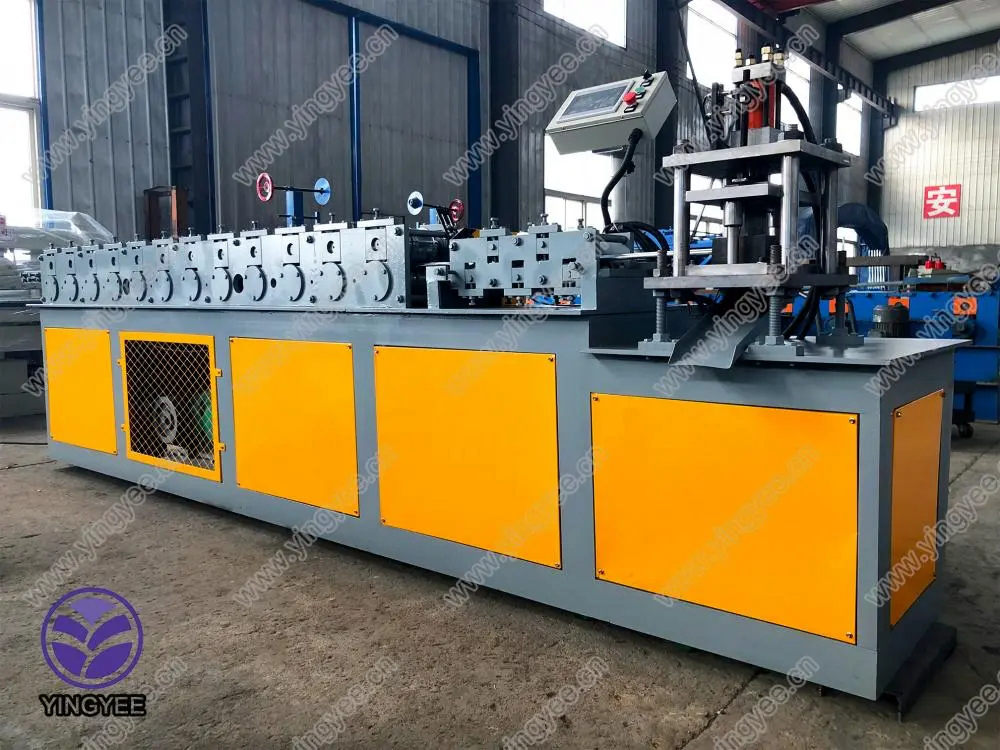
Understanding the Close Deck Floor Roll Forming Machine
In today's fast-paced construction industry, the demand for high-quality, efficient building materials is ever-increasing. One essential innovation in this sector is the close deck floor roll forming machine, which has revolutionized the way floors are manufactured. This article will explore the functionality, advantages, and applications of the close deck floor roll forming machine.
What is a Close Deck Floor Roll Forming Machine?
A close deck floor roll forming machine is a specialized piece of equipment designed to fabricate metal decking used in floor systems, particularly in commercial and industrial buildings. The machine operates by continuously feeding metal sheets, typically steel, through a series of rolling stations where they are progressively shaped into precise profiles. The finished product, known as floor decking, features special close deck designs that enhance structural integrity and load-bearing capacity.
How Does it Work?
The roll forming process begins with a continuous coil of steel feedstock that is unwound and guided into the forming machine. The metal passes through a series of rollers, each designed to incrementally shape the material. The rollers create specific profiles — often resembling a series of waves or ribs — that optimize the decking's strength and rigidity.
Once the desired shape is achieved, the machine may incorporate additional processes like cutting, punching, or welding to create a final product that meets precise specifications. The finished close deck floor panels are subsequently ready for shipping to construction sites or warehouses.
Advantages of Using Close Deck Floor Roll Forming Machines
1. Cost Efficiency One of the primary benefits of implementing a close deck floor roll forming machine is the significant reduction in material waste and labor costs. The precision of the roll forming technology allows for tighter tolerances, which minimizes scrap and ensures uniformity.
2. Enhanced Structural Performance The design of close deck profiles increases the load-bearing capacity compared to traditional flat sections. This feature makes them highly suitable for applications requiring substantial load support, such as warehouses and manufacturing facilities.

3. Speed and Efficiency Roll forming is a continuous process that permits high-speed production rates. This efficiency is particularly crucial when projects are on tight schedules. The ability to produce large quantities of decking quickly helps contractors meet deadlines while maintaining quality.
4. Versatility Close deck floor roll forming machines can work with different materials and customize profiles based on the specific needs of a project. This flexibility allows architects and engineers to select designs best suited for their structural requirements.
5. Superior Finish The finished metal decking produced is not only structurally sound but also visually appealing. Various coatings can be applied during the process to enhance durability and aesthetics, reducing the need for additional finishing work on-site.
Applications of Close Deck Floor Roll Forming Machines
Close deck floor roll forming machines are extensively used in a variety of construction projects. Some common applications include
- Commercial Buildings Many office buildings and retail spaces utilize close deck metal decking for their floors due to its high load capacity and design flexibility. - Industrial Structures Warehouses, factories, and distribution centers often rely on close deck systems to provide durable flooring that can withstand heavy machinery and equipment.
- Parking Garages The robust nature of close deck floor systems makes them ideal for parking decks, where they can efficiently support vehicles while resisting fatigue over time.
Conclusion
The advent of close deck floor roll forming machines has brought significant improvements to the construction industry, enabling the production of high-quality metal decking that meets modern structural demands. Their efficiency, versatility, and cost-effectiveness make them an indispensable tool for contractors and builders worldwide. As the industry continues to evolve, the innovations surrounding close deck systems are expected to play a pivotal role in shaping the future of building materials and construction practices.